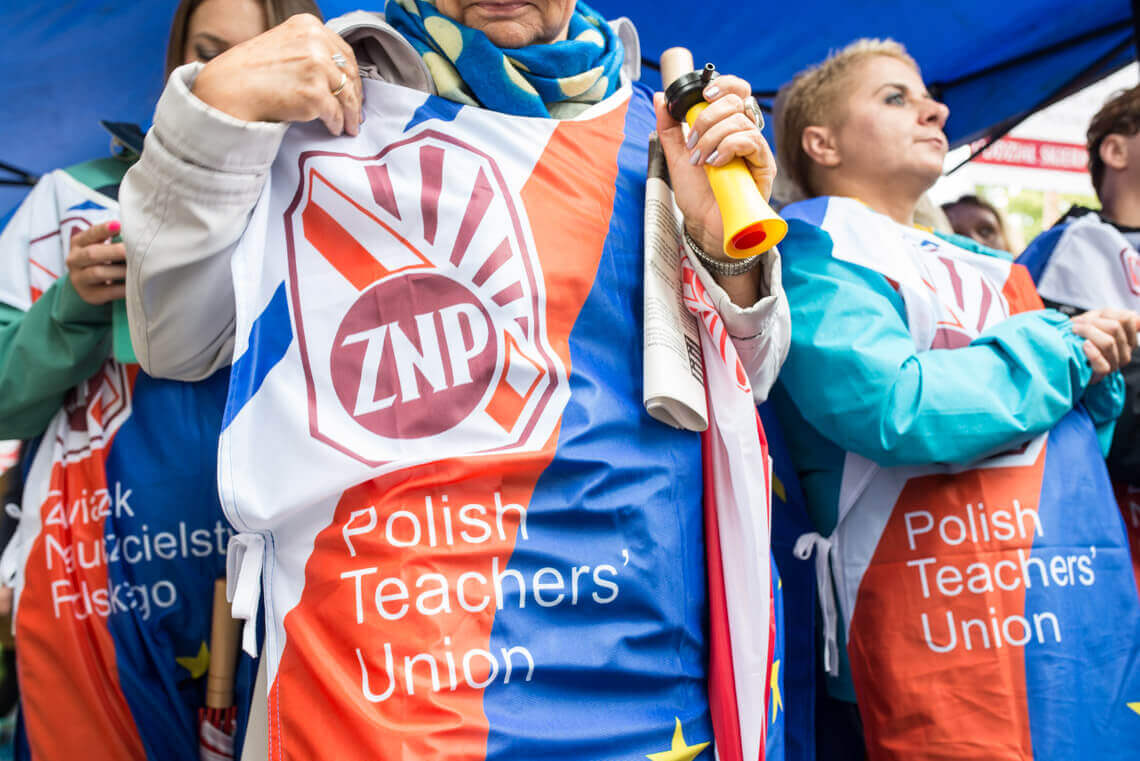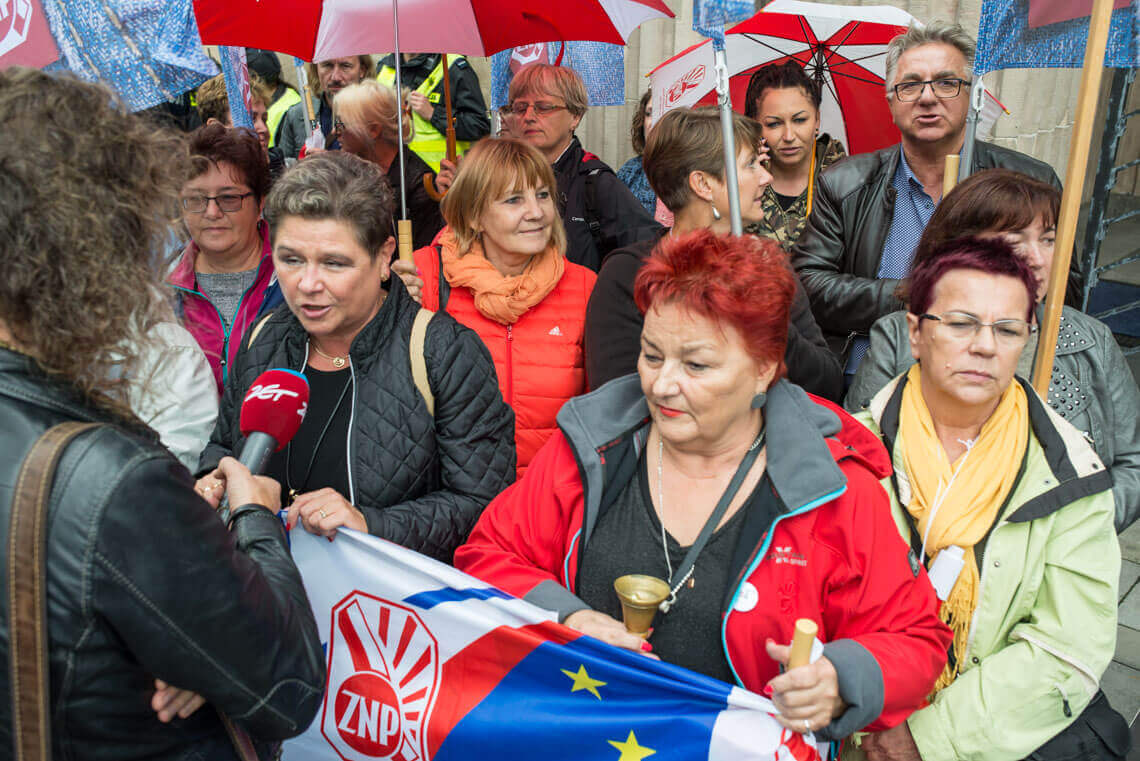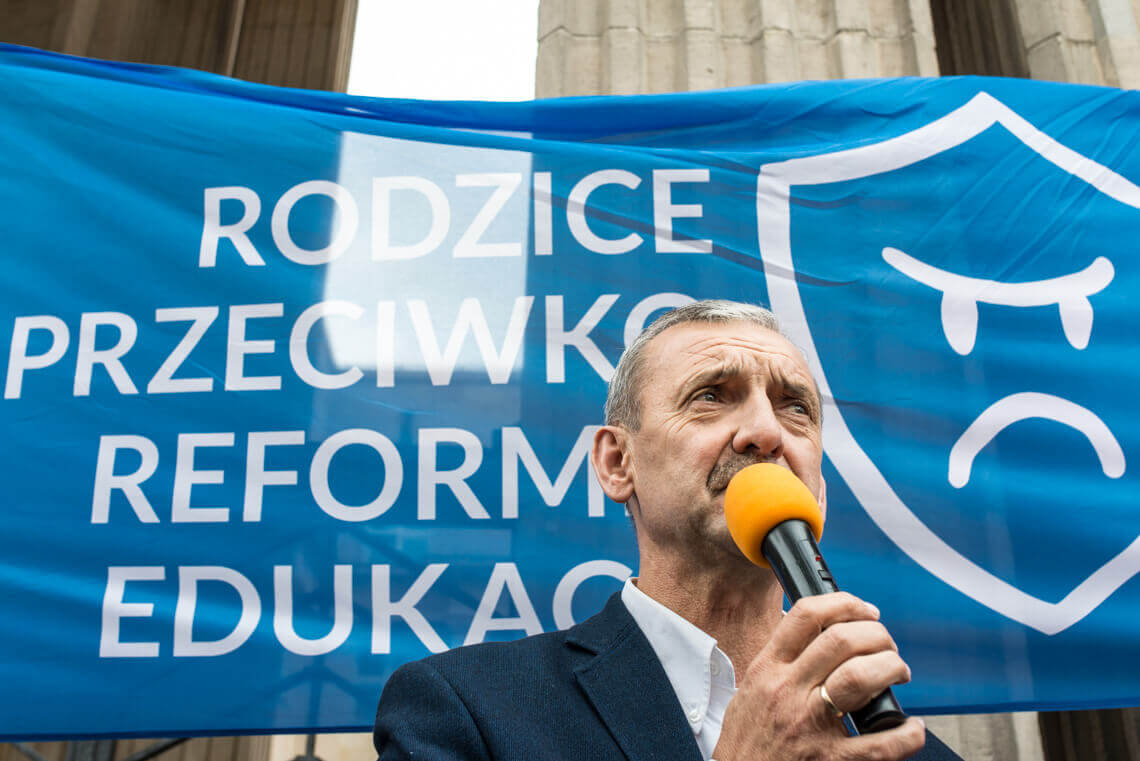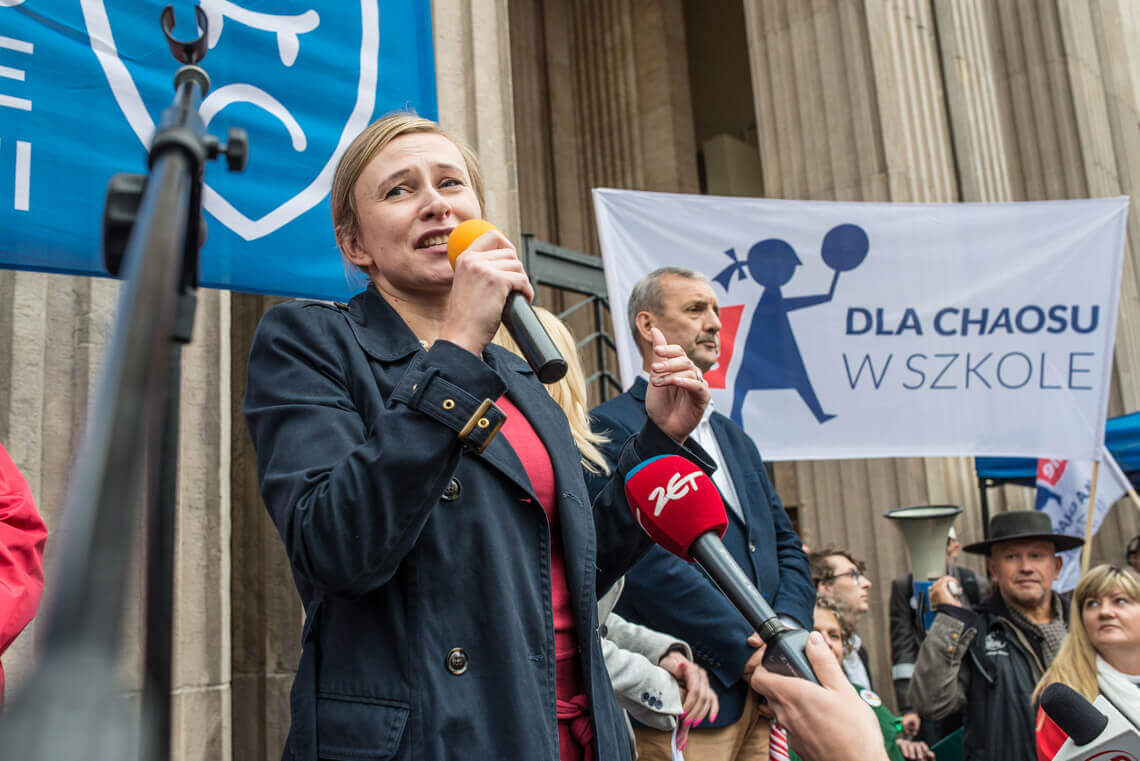Around four hundred people gathered in front of the Ministry of National Education in Warsaw. “The school is ours!” was the name of the protest organized by Polish Teachers’ Union. They rang the bells and students waved flags (most of them held rainbow flags). One protester came with a banner saying: “We want education, not lies”. Opposition MPs and activists attended as well. “Are you furious?” Dorota Loboda asked from the stage. Loboda is a co-founder of the movement Parents Against the Reform of Education. In May, together with other organizations, they collected almost one million signatures under a petition to stop the bill. A short silence and crowd responded with an uncertain “Yeees!”. Protesters have nothing to be happy about. The government passed the bill and nobody could stop it.

Ambitious reform
After long discussions and a wave of protests, the education reform came into effect. “The holidays are over. We are returning to our school desks. We are returning to schools which are different from the ones we left in June,” Prime Minister Beata Szydło said in a vocational school in Dobroczyn in Podkarpacie Voivodeship, the region with the highest support for the government in Poland.
This year the government will spend an additional 300 million PLN (84 million US dollars) and another 350 million PLN (98 million US dollars) by the end of 2019.

Gymnasiums, which students had attended after primary school and at which they had studied for 3 years, are going to be closed down over the next 2 years. Only second and third graders will have gone to such gymnasiums. Students, who were supposed to have gone into the first grade, will continue into the seventh grade of primary school, which will now last for eight years. After primary school students can choose between 4 years of secondary school or reformed vocational and technical schools where they will be studying for 5 more years.
Along with these changes government also modified the school curriculum. Currently it is used for the first, fourth and seventh grades of primary school. The remaining students are still following the old curriculum.
The government has promised free health care for every student in school.

Unsolved problems
Such drastic reforms have demanded the reconstruction of school buildings as well. Some of them are still unfinished. In city of Trzebnica, in the Lower Silesian Voivodeship, students began their academic year in the City Cultural Center. For the next two weeks or longer students in the first four years of school will have lessons there. Older children will have their lessons in a renovated building.
The government has promised free textbooks for most students in primary school. However, there are numerous reports around the country that the books have not been delivered on time. The Ministry of Education has blamed schools for ordering the textbooks too late. On the other hand, the schools have accused the Ministry of Education of failing to reveal the list of subsidised textbooks in time.

Prime Minister Szydło announced a rise of 15% in salaries by January 2020. However, the head of the Polish Teachers’ Union, Sławomir Broniarz, has said that almost ten thousand teachers have lost their jobs as a result of this reform, and more than twenty thousand are working less than they did before.
Many aspects of this reform are still highly controversial and not completely clear. In secondary schools students will probably have just one lesson of computer science per week and only in the first year. At the same time, a civil defence course will be given an additional hour. This change was proposed by the Minister of National Defence, Antoni Macierewicz. He thinks that students should learn not only first aid but also military admission.

Without discussion
When the government announced these reforms in June 2016, popular support was on their side. However, the growing problems have changed people’s minds. In April 2017, 60% of the population were against reform, resulting in almost a million signatures. People genuinely believed they would manage to stop the reform. But the government ignored them. On September 4, people felt frustrated. “Where is the minister?” a crowd shouted. They demanded open discussions in which their voices would finally be heard. Obviously, the minister did not appear. The people, standing in the cold weather, under the dripping rain, had lost their struggle to influence the shape of education. They could only announce that they will be following the implemented reform.
![Political Critique [DISCONTINUED]](http://politicalcritique.org/wp-content/uploads/2015/09/Political-Critique-LOGO.png)
![Political Critique [DISCONTINUED]](http://politicalcritique.org/wp-content/uploads/2015/09/Political-Critique-LOGO-2.png)